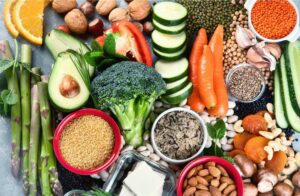The cost of living is steadily rising in Australia, and it doesn’t look to ease any time soon.
Check out our tops tips to reduce your grocery costs without compromising on your health.
Tip #1: Plan your meals, then make a list
Shopping lists make shopping quicker, easier, and cheaper! It’s also a terrific way to choose healthier options and only buy what you need – eliminating food waste.
Shopping online allows you to review your shopping basket before you pay, meaning you can easily stick to your budget.
Tip #2: Frozen and tinned counts!
Experts say frozen or tinned options can be as healthy as pricey fresh produce. Nutrients in frozen produce are sealed during the freezing process, lasting for weeks in your freezer. Tinned options are a quick and convenient way to bulk up your meals with additional vegetables and fibre. But keep an eye out for the sodium content opting for reduced salt options.
Tip #3: Buy what’s in season
Fruit and veggies are at their tastiest and most affordable when in season, as they’re in abundance. Also, if produce has been transported from a long distance nutrients may breakdown during the long travel time. Get cooking inspired with our recipes
Tip #4: Buy generic supermarket products
You can often save money and enjoy quality products by buying generic brands. Health Star Rating (HSR) can assist you in making the healthiest choice. HSR helps compare packaged foods from the same category. For example, comparing one breakfast cereal with another. Find out more: The Health Star Rating System
Tip #5: Visit your local Farmers Markets
Produce at Farmers Markets generally comes straight from the source, with locally sourced fruits and vegetables direct from the person who grew or made it. Farmers Markets help local farmers, producers, community, and the environment, plus research shows Farmers Markets could be great value! If the produce is grown locally and in season the price should echo that.
Tip #6: Know your meats
Meat varies in price so shop wisely and keep an eye out for daily and weekly specials. As a general cost, chicken is considered the cheapest meat per kilo, followed by fish, beef mince, pork (bacon), beef and lamb, all depending on the cut of meat. Remember, choose lean cuts of meat and poultry, follow the recommended serving size and avoid processed meats to minimise your intake of salt and saturated fat.





